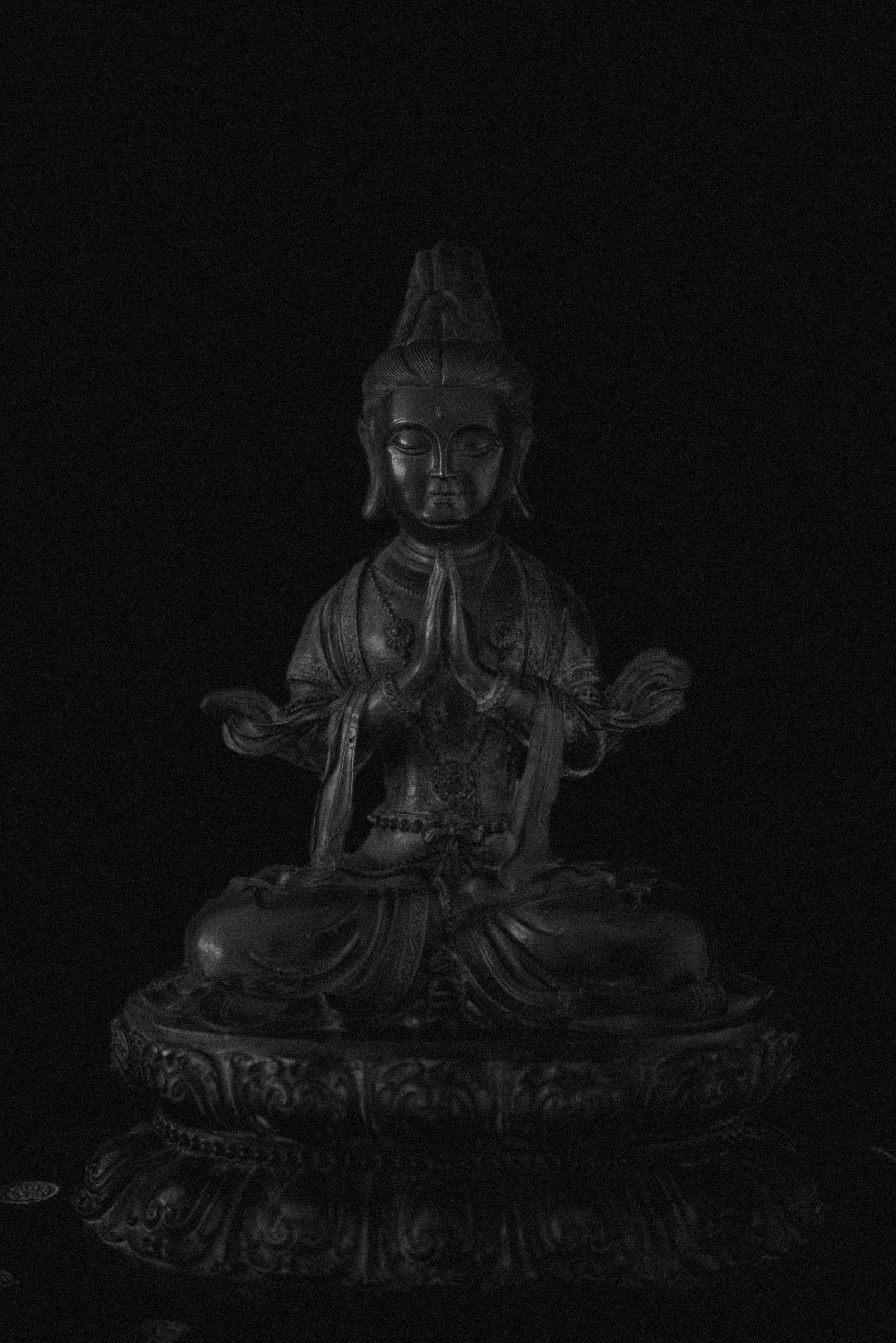
What is Zen?
Zen
Zen, meaning meditation, is a Japanese Buddhist tradition that is derived from China and India. The tradition emphasizes meditation at the heart of practice. Meditation helps us transform our relationship to the sense of who we are and how we see the world. Through meditation, we can open ourselves to awaken to the boundless nature of who we already are in this moment. Zen is a path for any individual regardless of belief, tradition, culture, or personal affiliation that seeks to experience our interdependence with life. Informed by Zen practice, we can then engage with the world through environmental and social action to foster harmony and sustain lasting welfare for the community and world we live in.
When we define Zen as being concerned with action in the world, Zen meditation practice informs how we live our daily lives from engaging in regular sitting meditation to mindfulness in our daily activities. At the root of Zen practice is the courage to deeply listen to ourselves and the needs of others to deepen an awareness of our innate connection with life.
Zen places emphasis on direct experience and the integration of mindfulness into every aspect of daily living. Zen practice encourages individuals to go beyond conceptual understanding and intellectual knowledge by directly experiencing the present moment. Through meditation practices, practitioners develop a deepened awareness of their own thoughts, emotions, and perceptions. By being fully present in each moment, practitioners can respond skillfully and spontaneously to the needs of the world around them. Through letting go of self-centered concerns and instead aspiring to benefit the welfare of others, actions are performed in the world by a deep understanding of our interconnectedness.

“If you want to travel the Way of Buddhas and Zen masters, then expect nothing, seek nothing, and grasp nothing”
— Dōgen Zenji
Who is Buddha?
Buddha is not a god but was a historical teacher of meditation originally named Siddhartha Gautama. The word Buddha is not a name, but a title from the Sanskrit language that means “Awakened One”. When Siddhartha became a Buddha, he had awakened to the nature of who he was. Just as it was for Siddhartha, we each have buddha-nature, or the potential to realize we are already awake to the boundless nature of who we are in this moment.
In Zen, the teachings of the historical Buddha hold significant importance. The emphasis is placed on understanding and embodying the essence of the Buddha's awakening, rather than focusing solely on the person of Siddhartha Gautama. While Zen recognizes the historical Buddha as a revered figure and acknowledges his profound insight, the practice is not to worship or rely on an external deity or figure. Instead, practitioners learn to embody their own Buddha-nature through meditation practice and mindful engagement with daily activities. The Buddha serves as an inspiration and guide in Zen practice, representing the potential for awakening that exists within everyone.
What is Buddhism?
Buddhism is a non-theistic spiritual path of principles and methods that guide any individual seeking inner transformation and lasting wellbeing, regardless of belief, tradition, culture, or personal affiliation. In its pragmatic approach, it offers a well-developed course of study in mindful practice to experience the interdependent nature of life. The teachings of Buddhism simply show us in our current life situation that the nature of who we are is interconnected with all life and can be experienced right now, in this moment.


